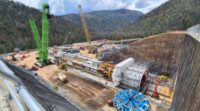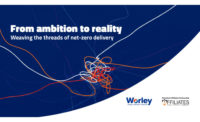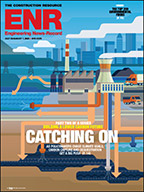Managers of acquired units have been promoted to corporate-level positions, and sharing of best practices goes both ways. “Andrew really trusts his people to a high level,” says Chairman John Massey.
Renshaw aims to expand Latin American operations beyond Peru, Ecuador and Colombia; also, the firm would like to move into Canada “in a major way,” he says. The firm already is an environmental consultant to the Ecuador unit of Toronto-based mining firm Kinross Gold Corp. “One of Cardno's strengths is its ability to consistently find practical solutions to complex problems,” says Eduardo Kelleher, director of environment and permitting for Kinross Ecuador.
No ‘Fuzzy Matrix’
Buckley also wants to strengthen the firm in Asian markets, targeting Singapore and Hong Kong. But he eschews pushing hard into China, noting the difficulties in getting paid and the higher risk of stolen intellectual property. Cardno has no plans to move into riskier construction work or to take equity positions in projects, despite the company's store of ready cash. “I am pretty keen on maintaining the professional-services model,” says Buckley. “I would need a lot of convincing to move out of that model. You can have big wins, but you can also get it wrong.” He emphasizes Cardno's lack of a “fuzzy matrix” management structure, which he says some peers have.
Cardno also hopes to expand its social infrastructure platform to drive work and new opportunity for its growing staff. “Our cultural work has tentacles extending into all parts of our business,” says Buckley. The firm's role in building 2,000 schools in Indonesia includes advising the country on delivery of education. Cardno has contracts from Australia's foreign-aid agency to design a “sustainable” elections system in Papua New Guinea. Funding continues to flow into emerging nations; for example, despite its domestic budget cuts, the U.K. government did not reduce funds for international development, Massey says.
The firm has made a big investment in bringing together its growing array of managers, Cardno executives say, but it's “well spent,” given cross-selling and organic growth potential. Employees own the bulk of the 50% of Cardno Ltd. shares not owned by institutional investors, Buckley says. “When they have an opportunity to sell, they mostly don't,” he says.
Buckley is optimistic that the world's economic outlook and Cardno's will improve in 2012. “The world is growing again, despite all the gloom and doom,” he says. “The U.S. economy has great resilience, although public-sector debt remains a big issue.” As for Cardno, “We're still relatively small globally, but we're making a splash. People are starting to take notice.”











Post a comment to this article
Report Abusive Comment